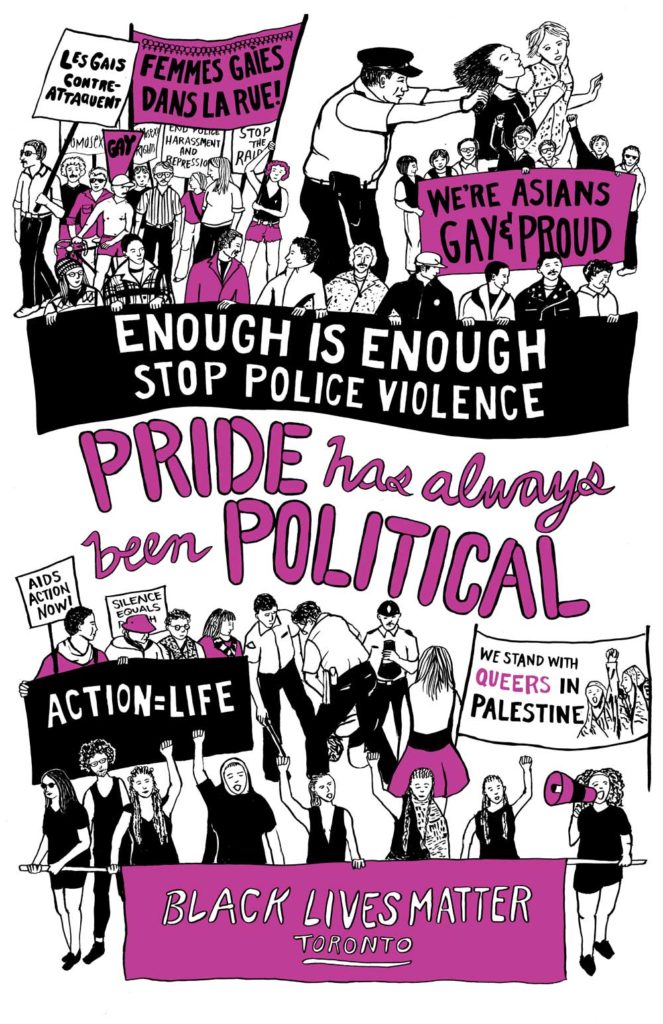In 1966, a police raid on Gene Compton’s, an after-hours cafeteria here in the Tenderloin lit a fuse and the LGBTQ+ world exploded in a riotous battle over space and survival. Pushed to the margins of society by segregation within the LGBT community, anti-gay laws, and the constant threat of violence, transgender women fought back against the officers with what was at their fingertips: coffee, trays, and chairs. Their brave resistance set the stage for the Stonewall Riots and fed the flame of a growing Gay Liberation movement. One year, after brave transwomen like Marsha P. Johnson and Sylvia Rivera fought off police at Stonewall with lipstick and Molotov’s, the first Gay Liberation parade took to the streets of New York in commemoration.
Since its inception, the march has been fraught with discrimination, and the hierarchies within the movement have been exposed again and again by radical queers taking space and fighting for justice. In 1978, march organizers in New York actually tried to ban “transvestites” from joining altogether, a bigoted move motivated by the goal of “respectability.” Marsha P. Johnson and Sylvia Rivera marched in front that year, refusing to be pushed aside. Their resistance led to the incorporation of Drag March in New York and Trans March here in San Francisco into Pride weekend.
In the 1980s, what had been a largely grassroots organizing project was usurped and assimilated into larger and less radical institutions. The language was changed to “Gay Pride” due to pressure from more conservative contingents, though it remained “Gay Freedom Day” in San Francisco until 1994. Tragedy also struck in the 90s, when shortly after the New York Pride march in 1992 Johnson’s body turned up in the Hudson river, though her murderers have not been identified to this day.
Already this year, activists have contested the white and cisgender centric politics of mainstream Gay Pride through disruptive and creative actions across the country. In Columbus, Ohio, Black queer activists shut down the regular Pride festivities with a blockade across the route of the march, advocating an end to violence against Black queers. In D.C., activists set up a similar blockade decrying the corporate influence of Wells Fargo and Lockheed Martin (among others) as well as the presence of police, who make the event less accessible for marginalized queers. Immigrant trans/queers seized international attention when they blockaded the Pride Parade in Phoenix, AZ, chanting “No justice! No pride! Sin justicia! No hay orgullo!”
Public marches and massive celebrations are an important part of acknowledging the beauty and resilience of a community often under attack, but without the injection of political radicalism coming mainly from queer and trans people of color the mainstream Pride march is forgetting that it is deeply rooted in a fight for liberation. No Justice, no pride!


